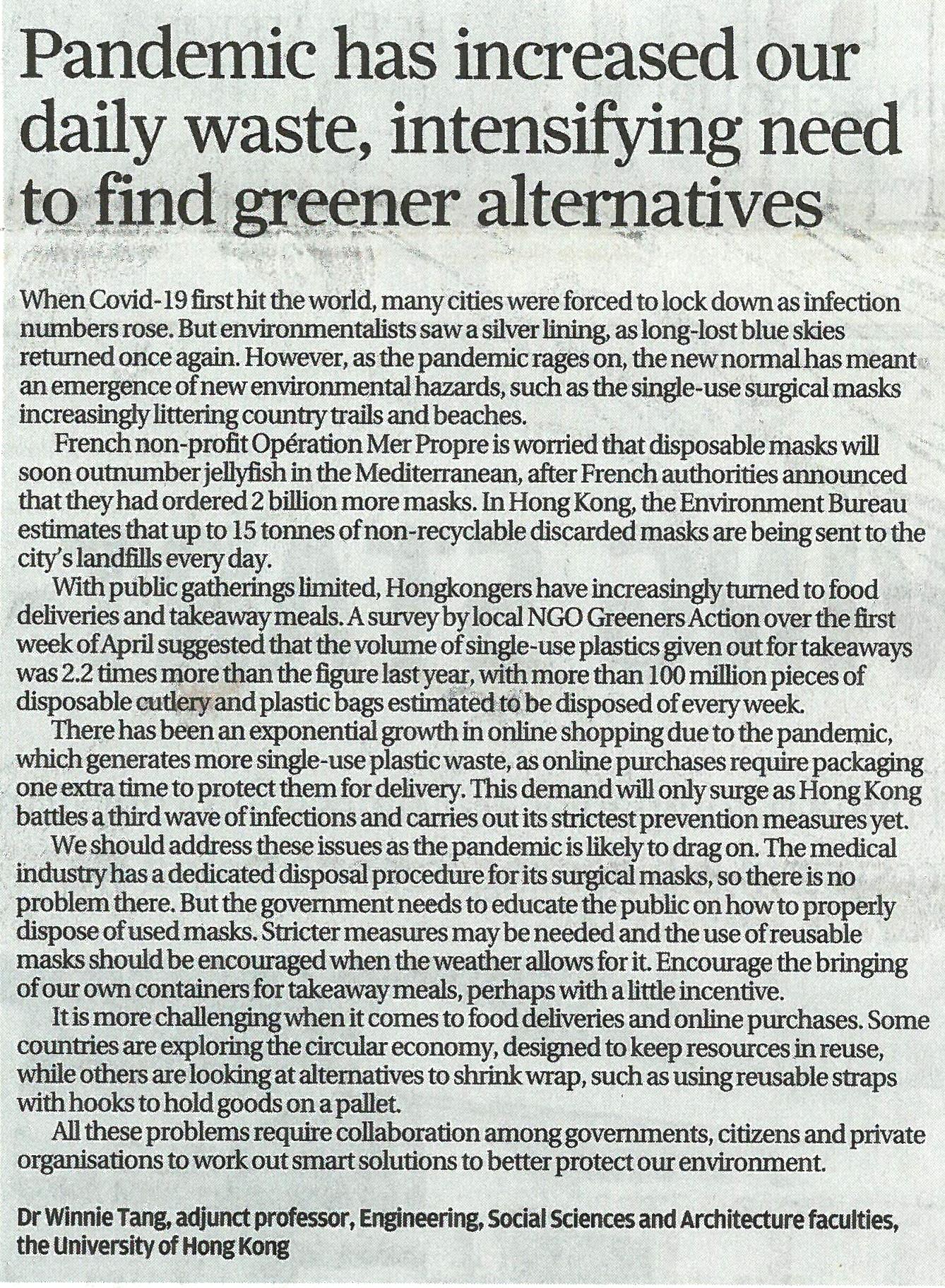網上版請按此

Pandemic has increased our daily waste, intensifying need to find greener alternatives
When Covid-19 first hit the world, many cities were forced to lock down as infection numbers rose. But environmentalists saw a silver lining, as long-lost blue skies returned once again. However, as the pandemic rages on, the new normal has meant an emergence of new environmental hazards, such as the single-use surgical masks increasingly littering country trails and beaches.
French non-profit Opération Mer Propre is worried that disposable masks will soon outnumber jellyfish in the Mediterranean, after French authorities announced that they had ordered 2 billion more masks. In Hong Kong, the Environment Bureau estimates that up to 15 tonnes of non-recyclable discarded masks are being sent to the city's landfills every day.
With public gatherings limited, Hongkongers have increasingly turned to food deliveries and takeaway meals. A survey by local NGO Greeners Action over the first week of April suggested that the volume of single-use plastics given out for takeaways was 2.2 times more than the figure last year, with more than 100 million pieces of disposable cutlery and plastic bags estimated to be disposed of every week.
There has been an exponential growth in online shopping due to the pandemic, which generates more single-use plastic waste, as online purchases require packaging one extra time to protect them for delivery. This demand will only surge as Hong Kong battles a third wave of infections and carries out its strictest prevention measures yet.
We should address these issues as the pandemic is likely to drag on. The medical industry has a dedicated disposal procedure for its surgical masks, so there is no problem there. But the government needs to educate the public on how to properly dispose of used masks. Stricter measures may be needed and the use of reusable masks should be encouraged when the weather allows for it. Encourage the bringing of our own containers for takeaway meals, perhaps with a little incentive.
It is more challenging when it comes to food deliveries and online purchases. Some countries are exploring the circular economy, designed to keep resources in reuse, while others are looking at alternatives to shrink wrap, such as using reusable straps with hooks to hold goods on a pallet.
All these problems require collaboration among governments, citizens and private organisations to work out smart solutions to better protect our environment.
Dr. Winnie Tang
Adjunct Professor, Department of Computer Science, Faculty of Engineering; Department of Geography, Faculty of Social Sciences and Faculty of Architecture, The University of Hong Kong